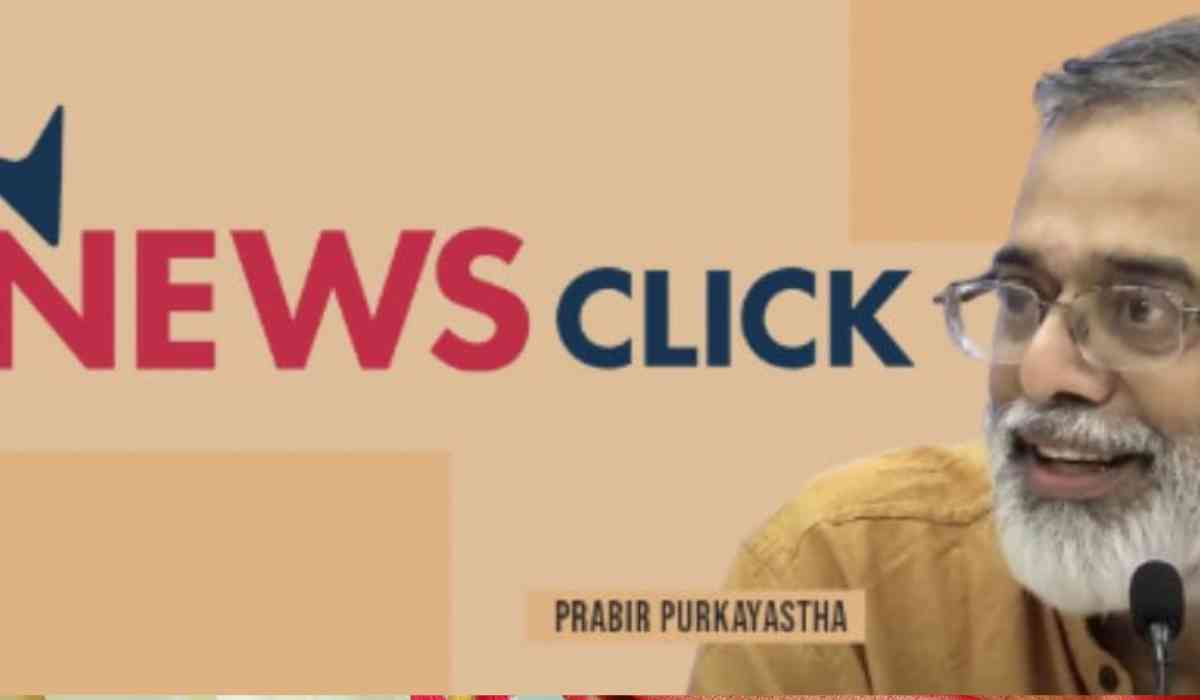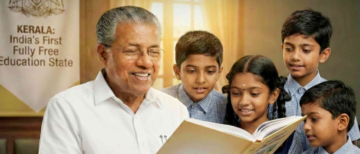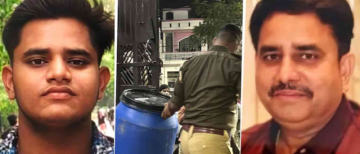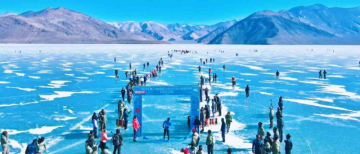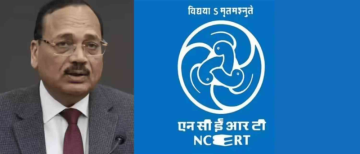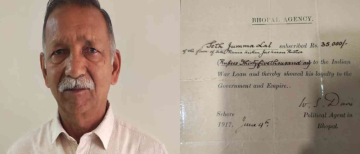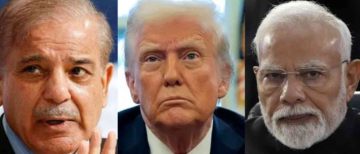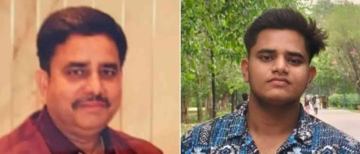On October 19, Thursday, Supreme Court Bench of Justices B.R. Gavai and P.K. Mishra issued a notice to the Delhi Police in response to petitions that challenge the arrest and detention of Prabir Purkayastha, the founder of NewsClick, and HR head Amir Chakraborty under Unlawful Activities Prevention Act (UAPA) - an anti-terror law. The Bench has instructed the Delhi Police to provide a response, and the matter is scheduled for October 30.
Initially, the court had set a date of three weeks from the initial notice, but senior advocate Kapil Sibal demanded for an early hearing right after the Dussehra vacation along with Devadatt Kamat. Sibal and Kamat are representing Purkayastha and Chakravarty respectively. The order was then issued following requests. Kapil Sibal underlined the age of his client, Mr. Purkayastha, who is over 70 years old, and has been in detention since their arrest on October 3.
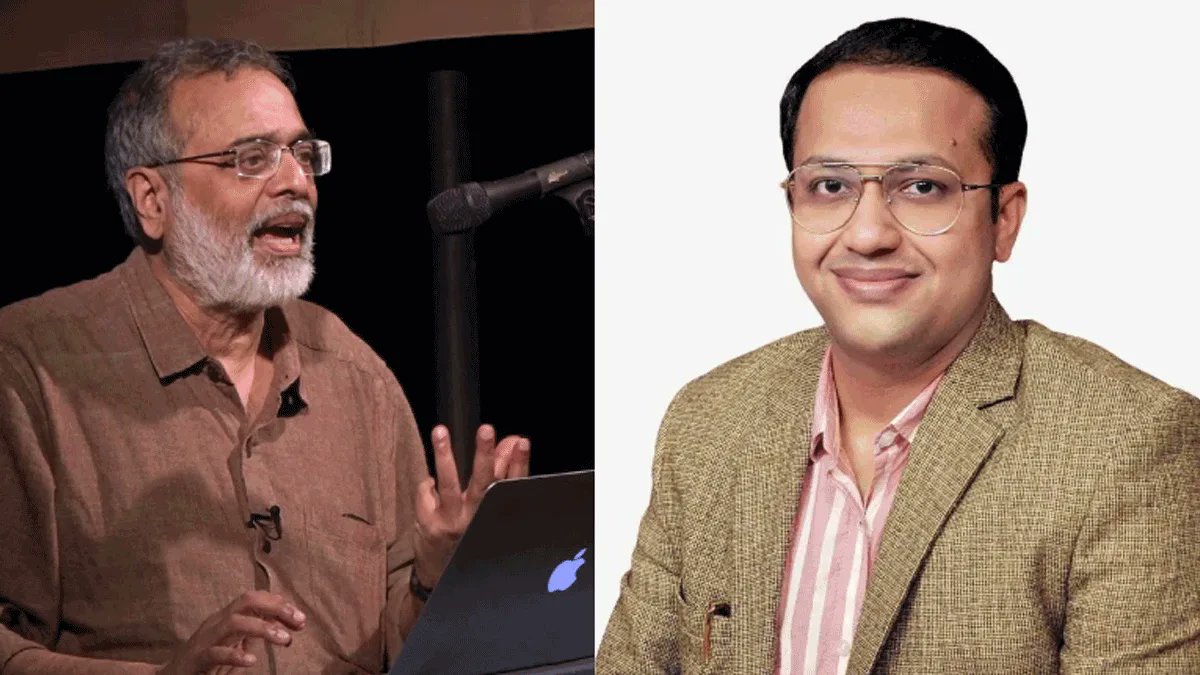
In Image, Prabir Purkayastha, the founder of NewsClick, and HR head Amir Chakraborty
The case was initially brought up on October 18 after the Delhi High Court declined to intervene in the arrest and police remand of Mr. Purkayastha and Mr. Chakraborty under the anti-terror law, but the Bench postponed it by one day stating that they required time to review the case files and indicated its intention to issue notice to the police.
The arrest
On October 3, Mr. Purkayastha and Mr. Chakraborty was arrested by the Special Cell of the Delhi Police based on an FIR filed on August 17 for allegedly receiving money to spread pro-China propaganda in India. Activist Gautam Navlakha, currently under house arrest in other terror case, is also mentioned in the FIR, U.S.-based businessman Neville Roy Singham, is the fourth name in the FIR.
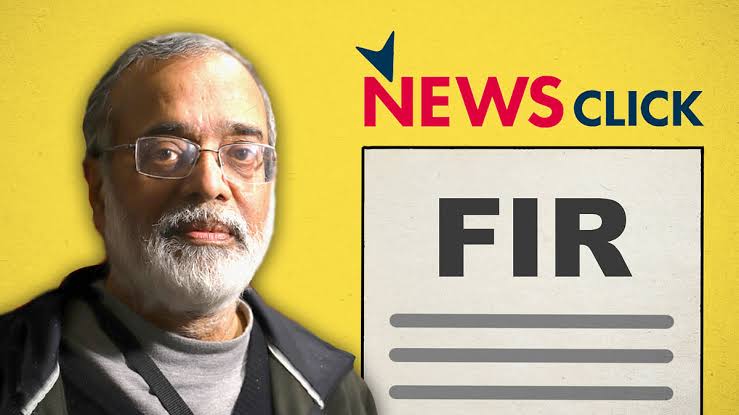
As per the FIR, it is alleged that the Newsclick is being funded by China with a large amount of money to undermine and interfere in India's sovereignty. The FIR additionally alleged that Purkayastha was involved in a conspiracy with a group called the People's Alliance for Democracy and Secularism (PADS) to interfere with the electoral process during the 2019 general elections.
Purkayastha and Chakraborty then challenged their detention in the High Court, contending that they were not provided with written reasons for their arrest, neither at the time of arrest nor afterward. They also contested the remand order issued by a Special Judge on October 4, as it had been granted without the presence of their legal representatives.
High court dismissed their appeal
Last week, Their Petition stating no "procedural infirmity" or any kind of breaching of constitutional provisions with regard to their arrest was dismissed by the Delhi High Court.
The High Court had commented, "In the present case, the alleged offences fall under the Unlawful Activities (Prevention) Act, 1967, and they have a direct impact on the stability, integrity, and sovereignty of the country. These allegations are of utmost importance as they have implications for national security."
The High Court clarified that the in the view of recent Supreme Court judgement in the Pankaj Bansal case, which as an advise directs investigating agencies to provide written grounds of arrest to the accused in Prevention of Money Laundering Act (PMLA) cases, would not apply to cases under the Unlawful Activities Prevention Act (UAPA).
Letter by Journalists
Many journalists’ from across the country came together and wrote to Chief Justice Chandrachud, urging him to take investigate the "inherent malice" behind the raids conducted at the residences of 46 journalists, editors, writers, and professionals associated with the online portal NewsClick, along with the seizure of their electronic devices.
In the letter, it was highlighted that the police had provided, until that moment, only "vague claims of unspecified crimes" as a justification for interrogating journalists about their coverage of topics like the farmers' movement, the government's response to the pandemic, and the protests against the Citizenship Amendment Act.
The letter emphasised that intimidating the media has a harmful effect on the democratic nature of society. It pointed out that suppressing journalists to an aggressive legal process solely because the government disagrees with their reporting on national and international matters is an effort to suppress the press by infusing a sense of fear of retaliation.
More in letter, they added that "journalism should not be treated as an act of terrorism." Journalists arrested under the UAPA frequently end up spending prolonged periods, and in some cases, even years, in detention. They found the use of the Unlawful Activities Prevention Act (UAPA) particularly alarming.

